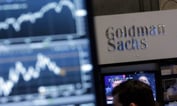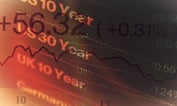The concept of “fake news” is certainly not foreign to most ETF investors. The ETF industry has experienced exponential growth over the past two decades, and with that progression also comes an influx of self-styled experts. A Twitter handle, blog, website or even a guest appearance on a television show can now provide platforms for such individuals to present their commentary as facts when they realistically are not.
Despite misinformation becoming more prevalent among new media, legitimate ETF experts who have bought, built and sold ETFs still exist and should be relied upon for accurate analysis, even if a little extra work may be required to locate and properly vet them. Separating fact from fiction, the following statements revisit five inaccurate characteristics commonly applied to ETFs.
ETFs are low-cost. On the contrary, ETFs are investment vehicles that can carry low, high or even performance-based fees. Conceptually, it’s like assuming a hedge fund or a private fund structure is designed for high fees, when in fact low fees can exist among such funds. The ETF structure, however, can help mitigate costs as previously discussed in this column.
Low trading volume means no liquidity. While this holds true for stocks because their new shares cannot be created or redeemed by a market maker, all investment company ETFs are structured to be open-ended, as an unlimited number of shares can be created or redeemed on a daily basis. As long as the underlying securities in an ETF remain liquid, ETF shares can be purchased or sold at a price very close to NAV, and occasionally even better than NAV.
Remember to use limit orders and to obtain help with trade execution; an advisor can always call the capital markets desk at an ETF sponsor or an ETF liquidity provider, too. In fact, unlike stocks, liquidity gets better with bigger-sized ETF trades.
A transparent ETF can’t deliver alpha. A number of strategic (or “smart beta”) ETF providers are “out-indexing” their traditional index counterparts. Discretionary active management also exists among both bond and equity ETF strategies, with many outperforming their index benchmarks.








 May 29, 2017 at 08:00 PM
May 29, 2017 at 08:00 PM









